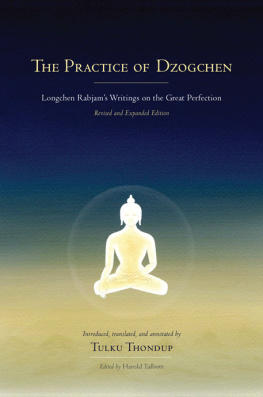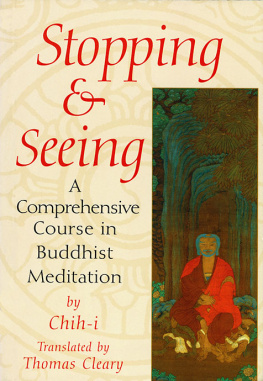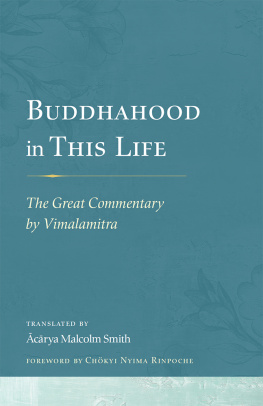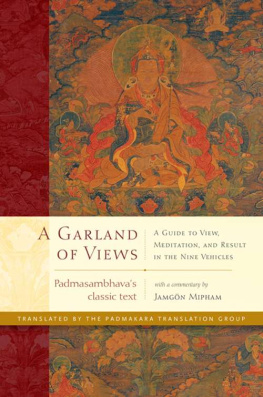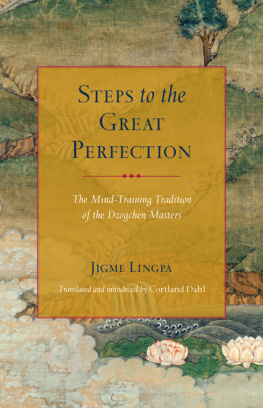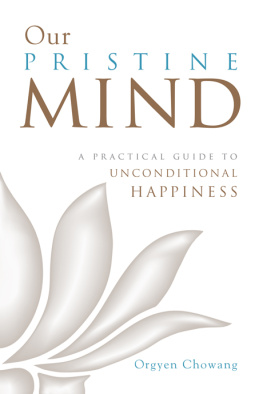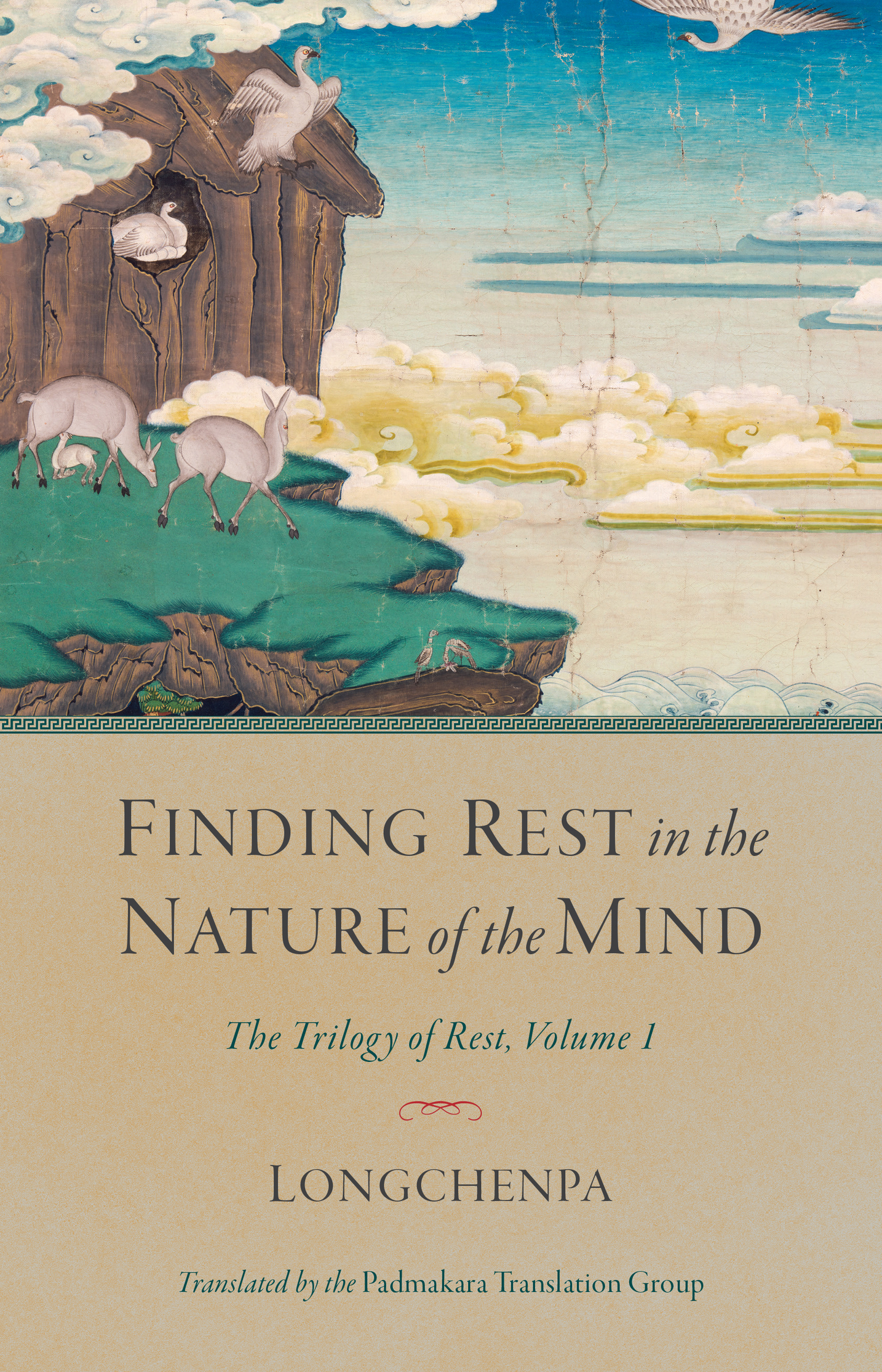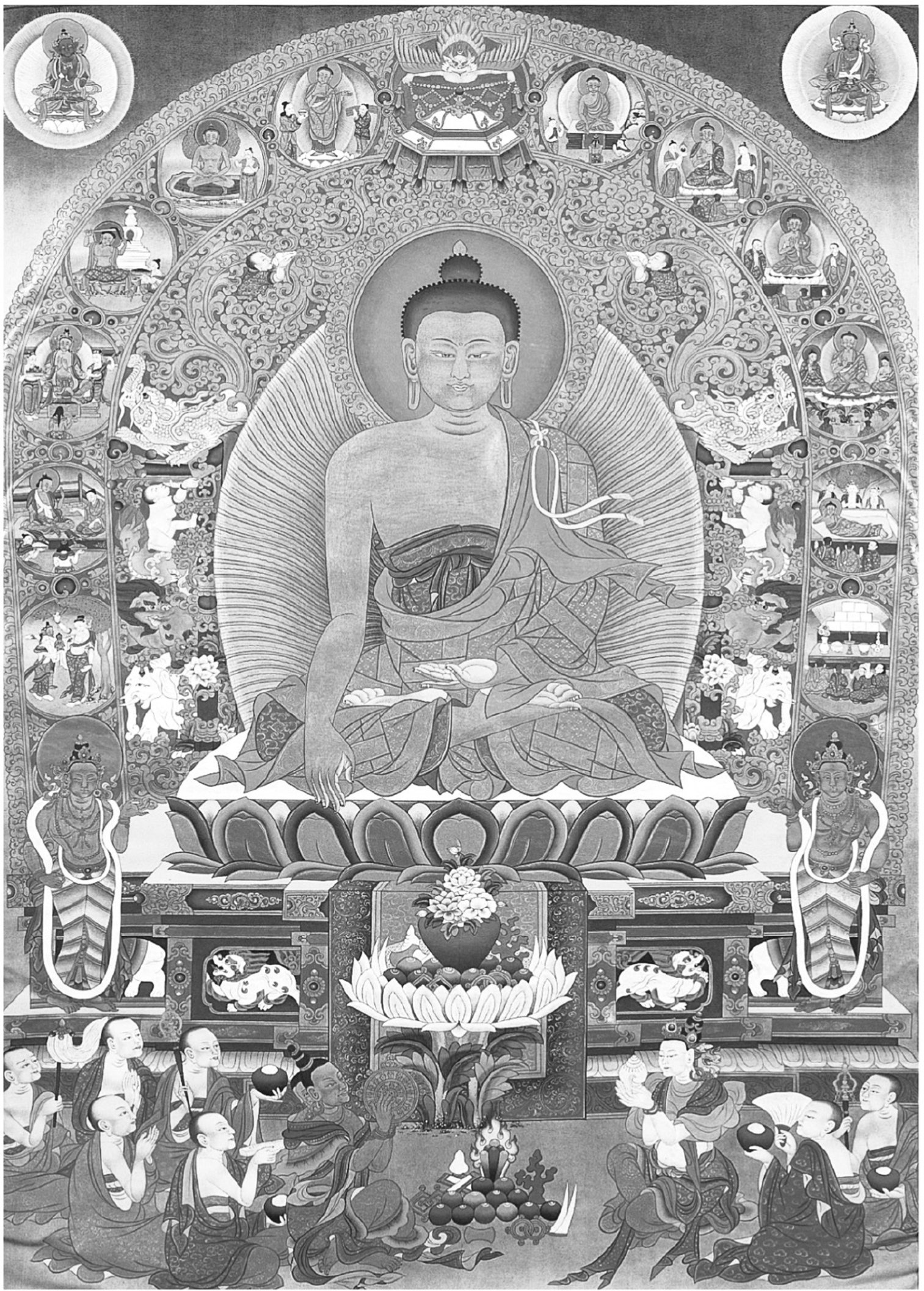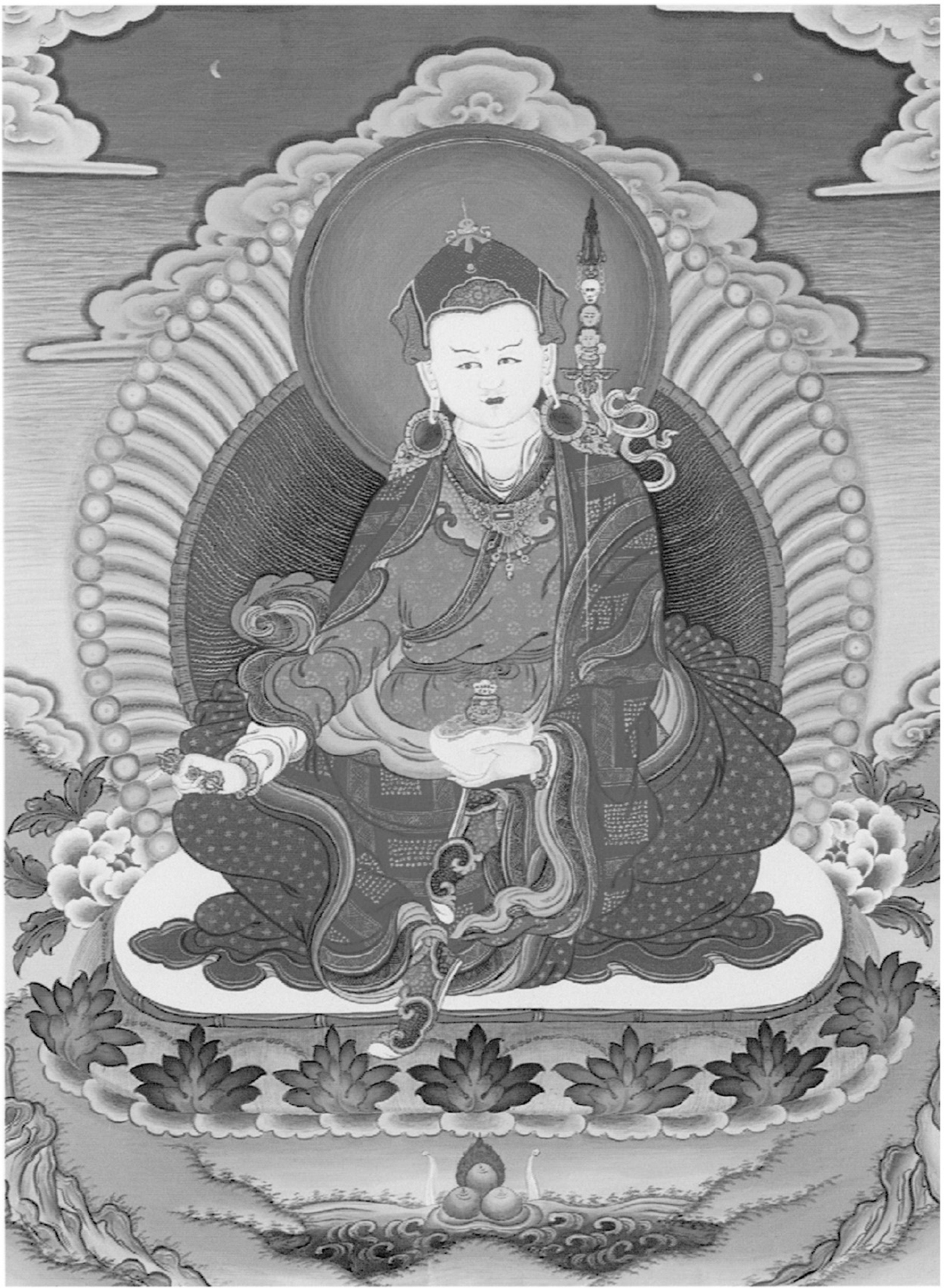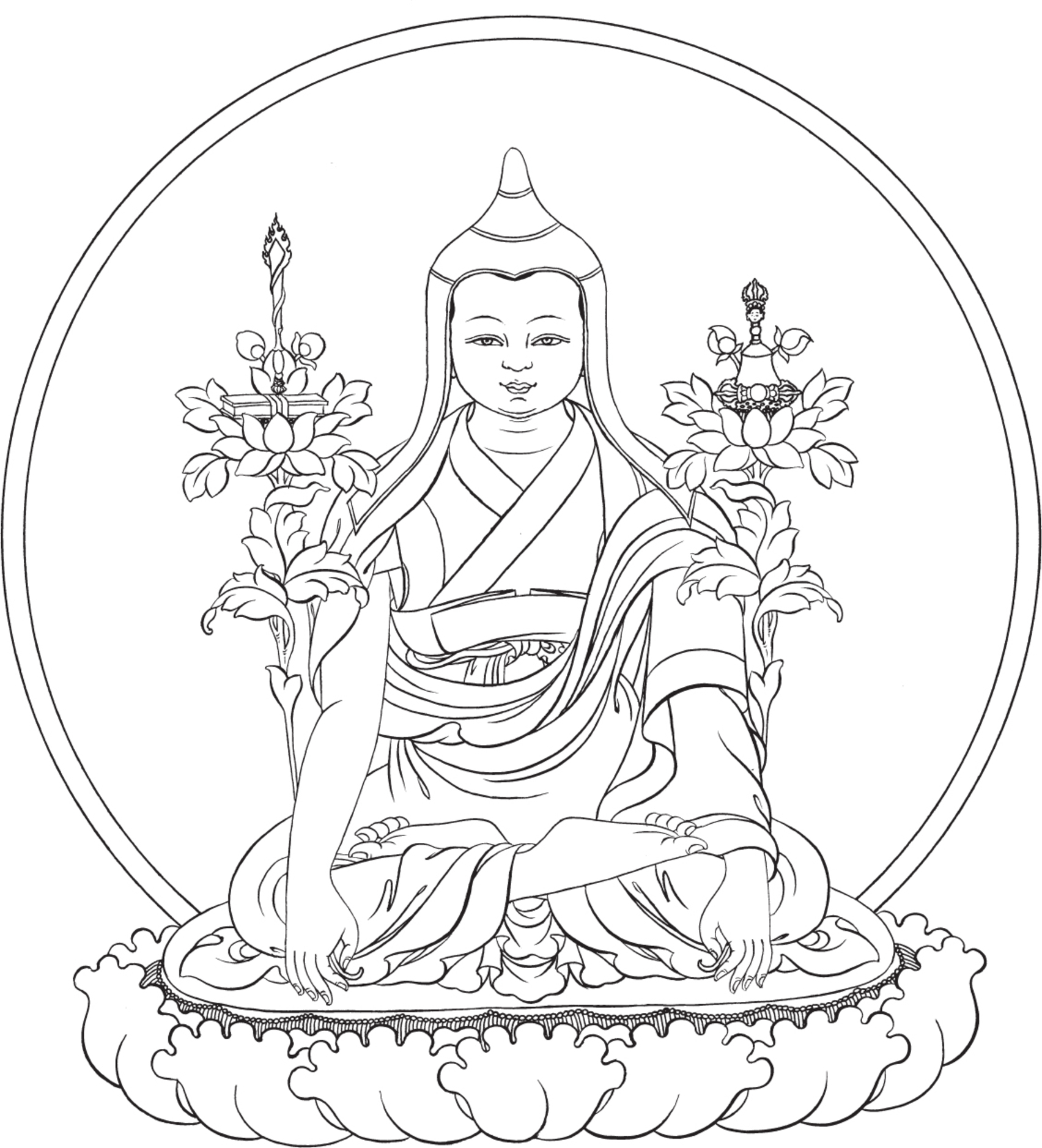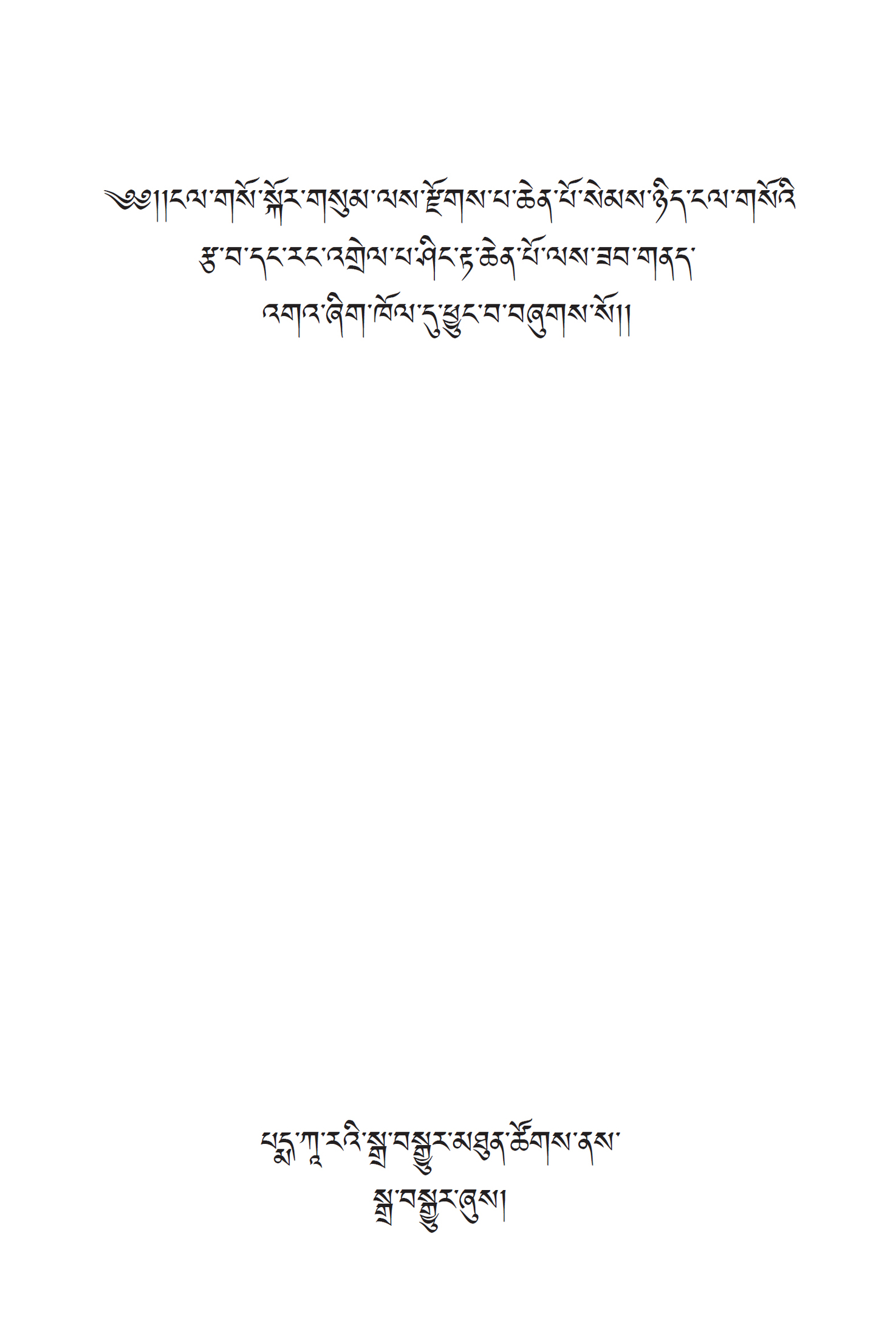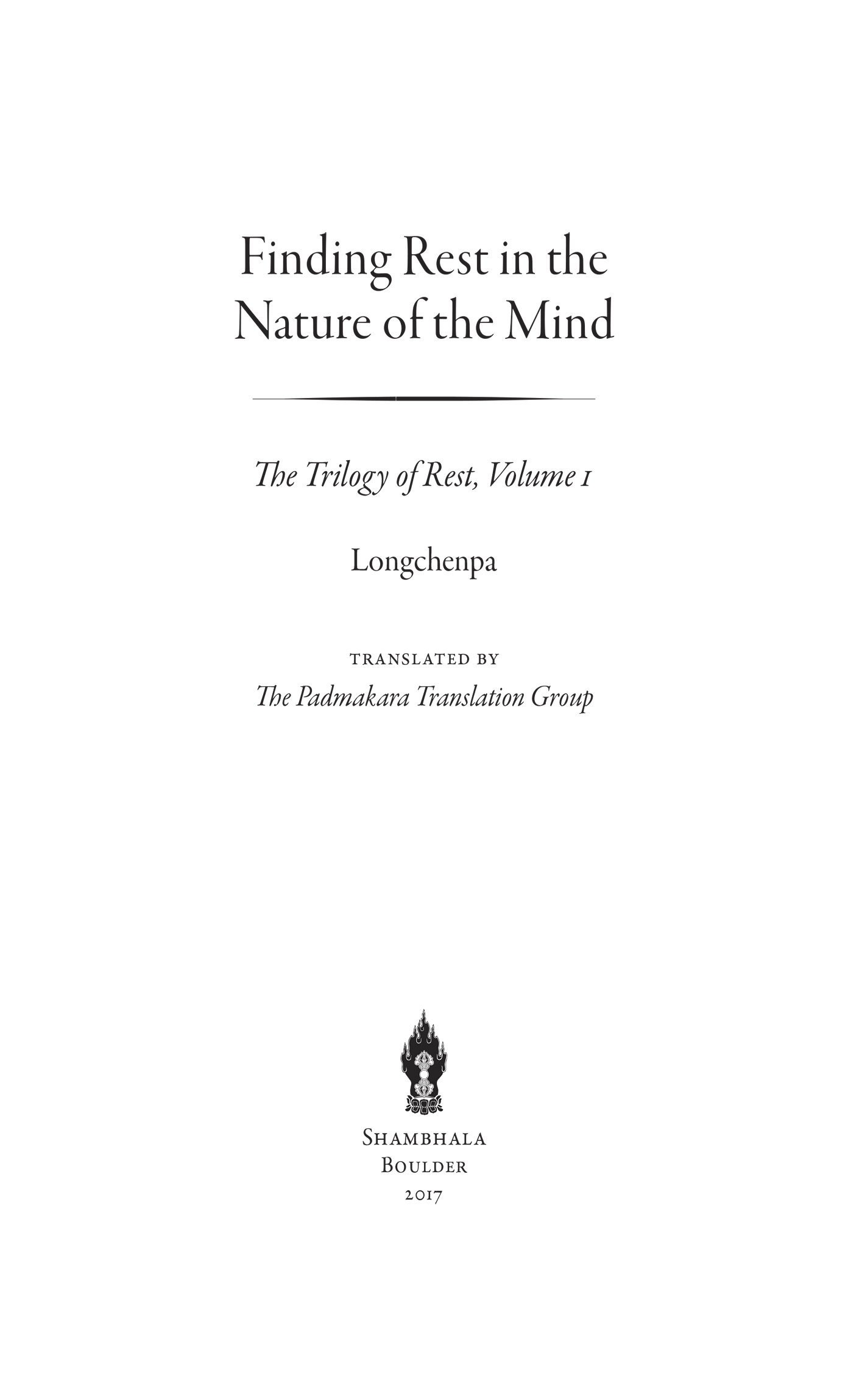F OREWORD

A LAK Z ENKAR R INPOCHE
Supreme among the vast array of pith instructions, Bringing into one epitome The crucial points without exception of the Tripitaka And the four classes of Tantra, These volumes are the summit of a myriad treatises That heal and that protect, A perfect chariot of teaching clear and unsurpassed, The supreme means whereby The minds of those who wander in the triple world, Find rest in freedom. Priceless in this universe, This scripture is the image of the speech of Longchen, Dharma king from Samy, who in times to come Will have the name of the Victorious Merudipa. It is a beauteous mirror formed of flawless crystal That reveals the sense of the essential lore Of the three yogas and nine stages of the Mahayana, Passed down by word of mouth and in the precious treasures, Rich patrimony of the line of knowledge-holders Of the Ancient Translations. Your aspiration first arose Upon the shoulders of the eastern hills And now your translation in a foreign tongue Shines like the day-creating sun Assisted by the light of publications wizardry. I celebrate its coming, The sweet friend of the lotus of the Buddhas doctrine. From the smiling blossom of delight and happiness There falls such honeyed nectar of rejoicing That, not waiting for the songs of the applauding bees, I cannot help but pour out my congratulation.
I who have grown old beneath this canopy of joy, This great refulgence of the sunlight Of the doctrine of the powerful Sage, Cannot but speak my praises of your wish To be of service to his teaching. Therefore may this lucid textual explanation, Indeed a health-sustaining herb For teachings of the Ancient Translation School And source of glorious sustenance for many beings, Increase a hundred, thousand, millionfold And be widely spread and propagated. With excellent aspiration and activity for the Buddhas doctrine in general and especially for the orally transmitted and treasure teachings of the Ancient Tradition of the Great Secret, the Padmakara translators have rendered into English the root texts of the Trilogy of Rest, which are now published together with their autocommentaries, the spotlessly clear exposition of the mighty Conqueror Longchen Rabjam. With joy and admiration, I, Thubten Nyima, join my hands at my heart and offer flowers of rejoicing. Written in the fragrant city of Chengdu on the twelfth day of the seventh month, in the year 2017.
F OREWORD

J IGME K HYENTSE R INPOCHE
A T THE CONCLUSION of the great autocommentary to his long and beautiful poem
Finding Rest in the Nature of the Mind, Gyalwa Longchenpa gave the reason for his massive composition.
He began by lamenting the fact that the great masters of the past, whose works were clear, comprehensive, and utterly trustworthy, had passed away. Their place had been taken by scholars of incomplete learning and understanding who, through clinging to words and formulas, had failed to penetrate the essential meaning of the teachings. They perceived differences and even contradictions between the views of the stras and the tantras of the Mahynawhere no such conflicts existed. It was to correct this misunderstanding that Longchenpa composed his Trilogy of Rest and in particular its first section, Finding Rest in the Nature of the Mind, which is an exposition of the stages of the path. Here, the stras and tantras are explained progressivelyfrom the preliminary reflections that cause the mind to take an interest in spiritual values, to the view and practice of the Great Perfectionin order to show how the earlier teachings are enlarged and completed by those that follow. Scriptural authority, reasoning, and the essential instructions of the practice lineage are all invoked to demonstrate that the Pramityna and the Mantrayna form a single, perfectly integrated vehicle suited to the varying abilities and aspirations of practitioners, and grounded, from beginning to end, in bodhichitta: the wish to attain buddhahood for the sake of others.
The basis of all progress on the path is faith: confidence in the Buddha as a trustworthy guide, in the truth of the Dharma that he expounded, and in the Sagha that over the centuries has preserved and practiced the teachings, and transmitted them to us. But if faith in the Three Jewels is the essential foundation, it is only through actually implementing the teachings that we can free ourselves from the confusion and meaningless sufferings of sasra. This being said, it is obvious that in order to practice the teachings, we need to know what they are. We need to understand them as clearly and as accurately as possible. We need to be certain of their truth. When the Buddha said that we should not accept his teachings out of blind faith but should examine them and put them to the test of reasoning and experience, he was not just expressing the fearless confidence of someone who had discovered and seen the truth for himself.


